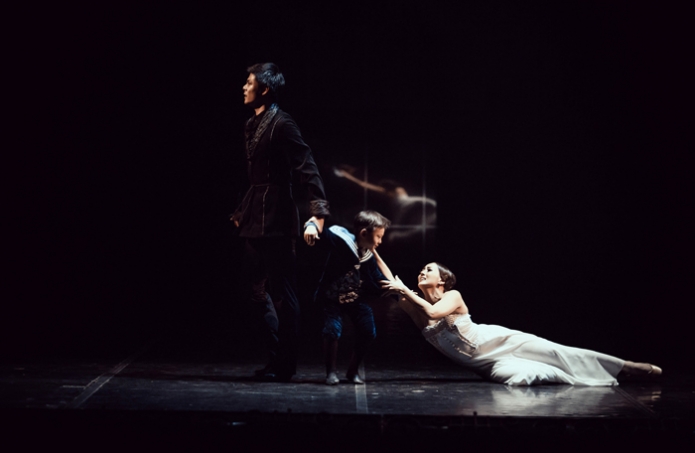ANNA KARENINA

Ballet in two acts
Ballet choreographed by Boris Eifman, music by P.I. Tchaikovsky
Based on the novel “Anna Karenina” by L.N. Tolstoy
Characters:
Anna Karenina
Vronsky
Karenin
Kitty
A fashionable ball has gathered together representatives of the upper-class society. Anna and her husband, an influential dignitary, are also present. Karenina meets the young officer Vronsky, who came to the ball with young Kitty. Vronsky, an impetuous and elegant good-looking young man, immediately falls in love with Anna. But what is happening in her heart?
Anna feels an increasing resentment towards her caring and sensitive husband; she is becoming increasingly indifferent to him. Karenina’s body and soul are suffering from the weight of the invisible shackles. Her husband’s concern for Anna is unbearable to her. Her heart starts filling with baneful passion towards Vronsky – an all-consuming passion that will soon drive Anna Karenina into obsession, and plunge her into the depths of insanity…
The horse races begin. Anna is enjoying the company of Vronsky. Karenin witnesses the lovers’ conversation.
St. Petersburg’s society condemns Anna and Vronsky’s relationship. Anna’s husband courageously bears the malignant gossip. But how humiliating it is!
Anna’s sensual attraction to Vronsky continues to grow. Karenina and the young officer eagerly wait for their encounters, and then lose themselves to passion. The lovers are inebriated with their criminal relationship.
Karenin’s torment continues to increase. Following a fight between the husband and wife, Karenina has a terrible dream. A string of phantasmagorical images weaves itself into an ominous prophecy. Awakening from heavy slumber, Anna begs her husband’s forgiveness.
A noisy officers’ drinking bout. Vronsky appears, but he does not find solace in wine and carousing. His thoughts are with Anna.
Scandals have become regular in the Karenin family. The humiliated husband appeals to Anna again, but she is deaf to his pleas. Karenin has a talk with Vronsky, who doesn’t even try to hide his relationship with Anna.
Earning for long-awaited freedom from the burdens of misery and vanity, Vronsky and Anna travel through Europe and visit a Venetian carnival. But the sumptuous feast of colour and her lover’s embraces cannot save Anna from unceasing torment of soul. A new coldness in Vronsky’s attitude exacerbates her suffering.
St. Petersburg’s society has turned away from Anna. She has become a pariah. She sinks deeper into the abyss of desperation and madness, caused by Anna’s morbid passion. Endless scenes of jealousy and Vronsky’s increasing indifference to Karenina ruin their relationship.
Anna tries to find salvation from pain in morphine. But the drug doesn’t bring relief, and instead carries the woman’s exhausted mind into a horrible realm of infernal visions.
Anna does not have long. Her soul is destroyed by all-consuming blind passion, her mind poisoned by the drug. Wanting to stop the inhumane agony, Anna rushes to the train station, where a careering mass of a train ruthlessly cuts her anguished and meaningless life short.
